Two by-polls, 29 years apart – yet so similar?
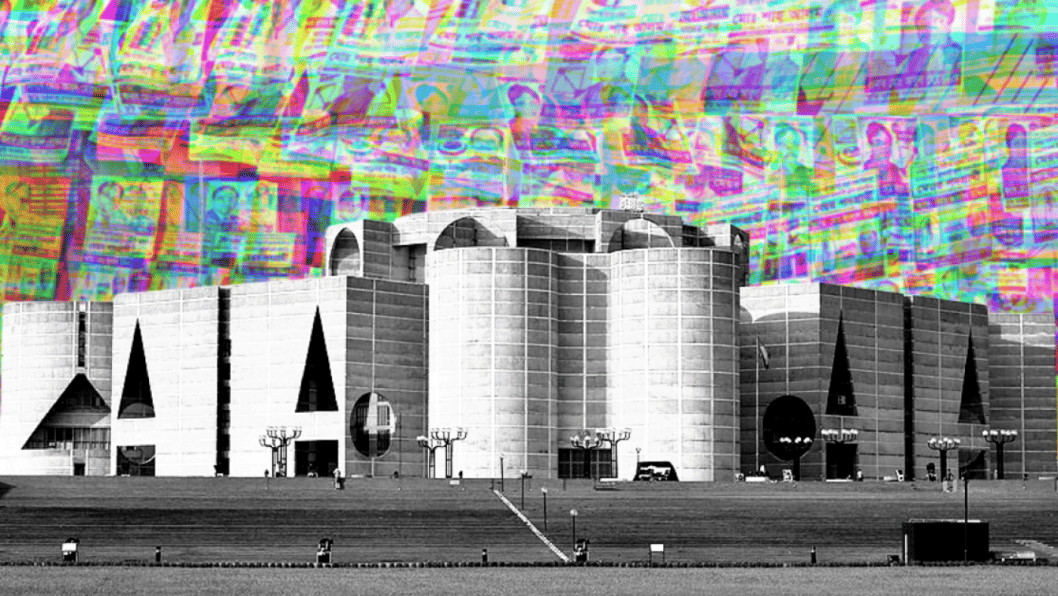
After Bangladesh's journey began on the path to becoming a modern democracy in 1991, many expected that electoral democracy would gain a strong footing gradually. But that hope and aspiration stumbled for the first slip at the infamous Magura-2 parliamentary by-polls on March 20, 1994. It became a symbol of a rigged election in the era of democracy, which seemed to have been restored after Ershad's autocratic regime came crashing down.
That by-election brought two issues to the fore: that a free and fair election was not possible under a partisan government, and that the Election Commission was not free at all under a political government. The by-polls helped the Awami League-led opposition parties of that time to intensify their campaign for the introduction of a non-partisan, election-time government.
In the face of a strong campaign launched by the opposition, a caretaker government provision was introduced in the constitution and, subsequently, four national elections were held under non-partisan caretaker governments. Those elections were, by and large, free from the controversy of vote-rigging and ballot-stuffing. But the caretaker government system was annulled from the constitution following a court verdict. And we saw a resumption of the old tactics of vote rigging, with polling centres being run over by party cadres, ousting of polling agents, stuffing and snatching of ballot boxes, and intimidation of voters.
Then came the two controversial national elections of 2014 and 2018. While the BNP boycotted the 2014 election, the 2018 election saw 153 ruling-party-aligned candidates elected uncontested amid widespread allegations of irregularities. There were allegations that ballot boxes were stuffed the night before the election, and the opposition camp lost the election even before voting had begun.
In recent times, we have also witnessed voter turnouts gradually declining, which is surely an ominous sign for democracy.
After around three decades, if we look back at that fateful by-election of Magura, we would realise that the situation has not changed much. It happened again at the Gaibandha-5 by-election. The issue of by-elections came into discussion once again when seven BNP lawmakers – the only BNP candidates who had managed to win in 2018 – resigned. After their resignation, the Election Commission announced the election schedule, and the ruling Awami League and the main opposition in parliament, the Jatiya Party, nominated their respective candidates. But the Brahmanbaria-2 by-poll stole the show as a former BNP leader (after having been expelled from his party), Ukil Abdus Sattar, contested the election as an independent candidate.
Sattar had been elected five times from the constituency and had been state minister as a technocrat. His loyalty to the party was unquestionable. Following an order from the party high command, he had resigned from parliament, but made a surprise turn-around as he decided to contest the by-election as an independent candidate, in turn getting himself expelled from the BNP. The belief held in his constituency is that Sattar is contesting the polls for two reasons – first, he was trapped by the government and second, out of fear that he would not get the party ticket for the next election as he is over 83 years old.
Another reason is that BNP leader Rumeen Farhana has a high probability of getting the party nomination in the next election from that constituency. For Sattar, his political future is almost ending. Many in the constituency have also said that it is actually Sattar's son who is trying to "make his future" through this by-election.
This particular by-election attracted further attention when all three ruling Awami League aspirants – it was open to anyone interested to run – withdrew their candidacy following the directions of party high-ups. It turned out to be a cakewalk for Sattar. On AL's part, it was presumably a good gesture to let a senior politician of the opposing camp have a last hurrah, since he is most likely at the twilight of a long and distinguished career. However, it is so rare that this incident is certain to go down in history as a very likely one-off where the ruling party favoured an opposition candidate.
The ruling Awami League has repeatedly said that the next election will be a free, fair, and inclusive one. BNP sent a strong message through the resignation of its lawmakers, saying that it was not making empty threats when saying that the party would not join any elections under the incumbent government. And Awami League appeared to have countered this with a tactic of sending a message to BNP aspirants, saying they might get an open field if they break away and run during the elections. Then, Awami League could claim the elections to be inclusive and also be certain of retaining office.
It is often said that in politics, there is no last word. Through Sattar's participation, the ruling Awami League will try to prove a few things, particularly that BNP's decision to resign from the parliament was wrong, and will send a message to BNP leaders and aspirants that they may have a chance in the next polls if they betray their party and create a few cracks in what has so far remained steadfast determination. It is perhaps BNP's biggest achievement of the last 15 years that the party remained intact, with none of its stalwarts breaking away. But Sattar's election may have an impact.
But one must wonder whether this move was indeed a good strategy for the ruling party. Is politics just a voting game? Should there not be moral or ideological practices in politics? After all, the one thing politicians must keep in mind is that once someone is labelled as a traitor, it hangs around their neck like the fabled albatross.
BNP had to rig the Magura by-polls in 1994 to back their claim that their popularity had not decreased. Three decades later, the AL took on a different strategy and let an independent candidate win to coax out aspirants from BNP's fold. In 1994, although BNP won the polls, it was defeated in politics. The Awami League might console itself with a self-congratulatory chuckle thanks to Sattar's victory. It might almost seem that the Awami League has manipulated a win in the first skirmish. But will such a stratagem or tactic win them the war?
Mohammad Al-Masum Molla is deputy chief reporter at The Daily Star.

 For all latest news, follow The Daily Star's Google News channel.
For all latest news, follow The Daily Star's Google News channel. 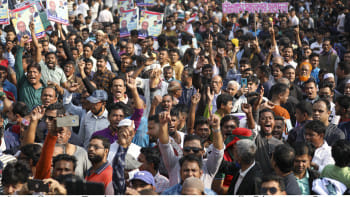
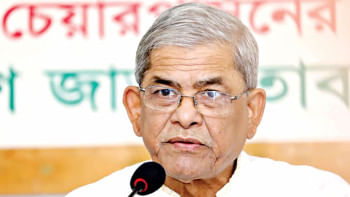
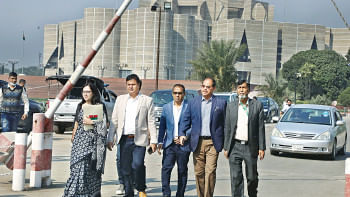
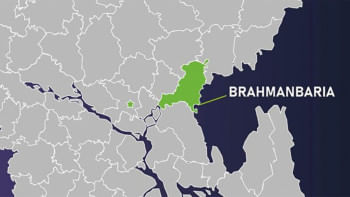










Comments